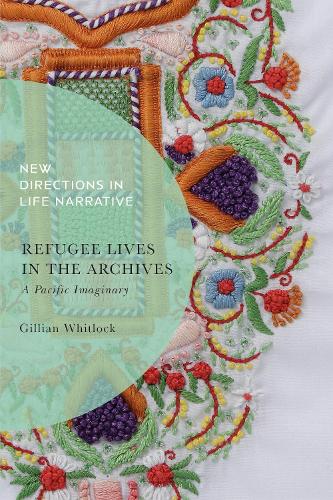
Refugee Lives in the Archives: A Pacific Imaginary
(Hardback)
Available Formats
Publishing Details
Refugee Lives in the Archives: A Pacific Imaginary
By (Author) Professor Gillian Whitlock
Bloomsbury Publishing PLC
Bloomsbury Academic
22nd August 2024
United Kingdom
Classifications
Professional and Scholarly
Non Fiction
Refugees and political asylum
Political activism / Political engagement
325.210994
Physical Properties
Hardback
184
Width 162mm, Height 238mm, Spine 16mm
480g
Description
This book introduces the unique archive of letters, textiles, hand-drawn maps, emails and photographs from asylum seekers held indefinitely in offshore detention at Topside Camp, Nauru 2001-5. These artefacts introduce the distinctive and creative forms of resistance produced by asylum seekers in the remote Pacific camps on Nauru and Manus Island, and they expose their experiential histories of radical suffering and trauma. Paying due deference to the creative and aesthetic agency of these various documents and artefacts created by the undocumented here, Gillian Whitlock generates a cultural biography of the Nauru camp that humanizes those who have remained unseen and unheard, and features the activist campaigns and the political resistance that assert the agency of witnessing refugees. Structured around the collections of various artefacts exchanged between detainees and humanitarian activists, Refugee Lives in the Archives draws on emerging theories from detention centres and the asylum seekers themselves in a distinctive and expansive Pacific imaginary of refugee life narrative. Building on Whitlocks substantial body of work in testimonial, documentary and archive practices, this book focuses on the testimony of things and probes an approach to archival studies that moves life writing in new directions, to respond collaboratively to the diverse materiality of story-telling and exchanges in the unique and creative forms of asylum seekers voices, stories and epistemologies.
Reviews
Whitlock attends with clarity to the words, images, crafts and artworks of people whose lives have been blighted by Australias offshore detention system. Refugee Lives in the Archives is a tribute to the archives capacity to bear witness in tenacious fragments and increments to the impacts of exclusion. This is a deft, ethical book. * Emma Cox, Head of Department of Drama, Theatre and Dance, Royal Holloway, University of London, UK *
Author Bio
Gillian Whitlock is Emeritus Professor in the school of Communication and Arts at The University of Queensland, Australia. She is a fellow of The Australian Academy of the Humanities. She has published numerous books, including The Intimate Empire (2000), Soft Weapons: Autobiography in Transit (2007), and Postcolonial Life Narratives: Testimonial Transactions (2015).
